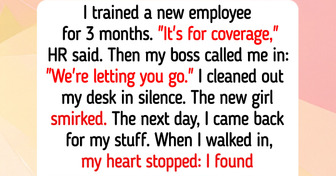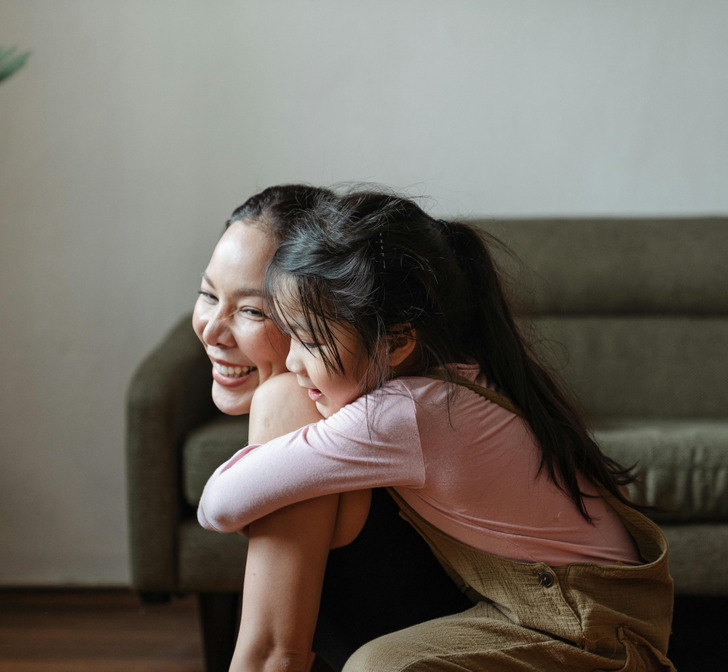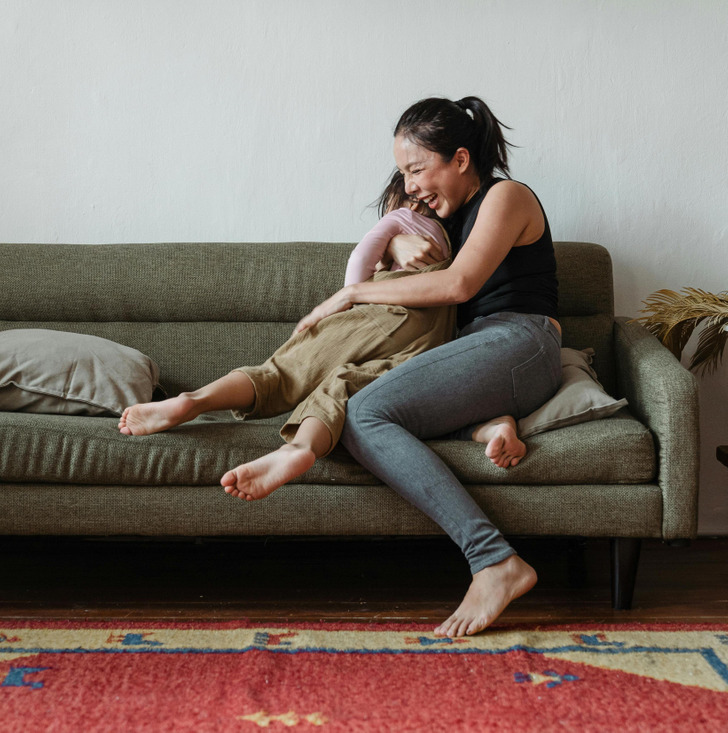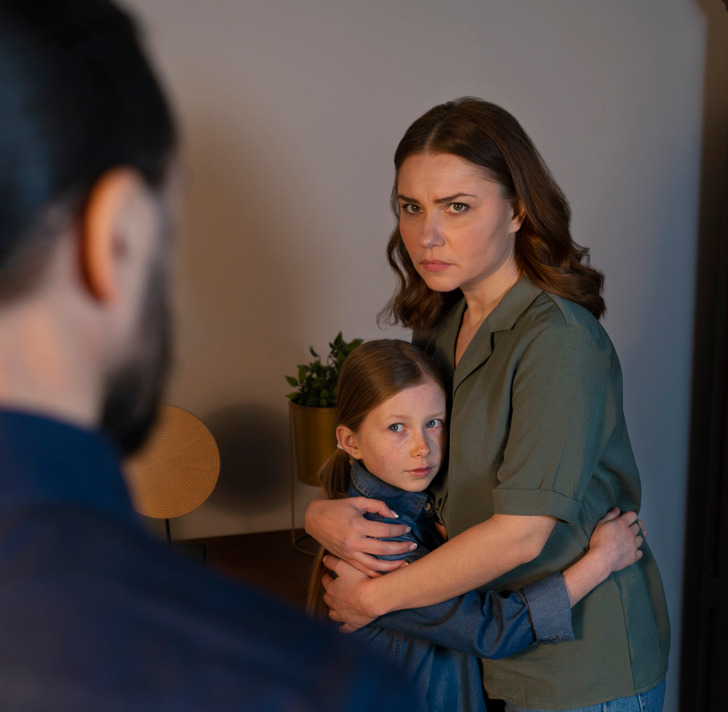If this attitude does not work with Grandparents, who are usually the most forgiving of their grandchildren, it most certainly wont with the rest of the world. Friends will not be treated like that. Teachers will take a dislike and employers are not likely to exist. Manners and interaction are vital skills to learn for adults and children alike.
I Refuse to Force My Daughter to Say “HELLO” and “SORRY” Even to Family
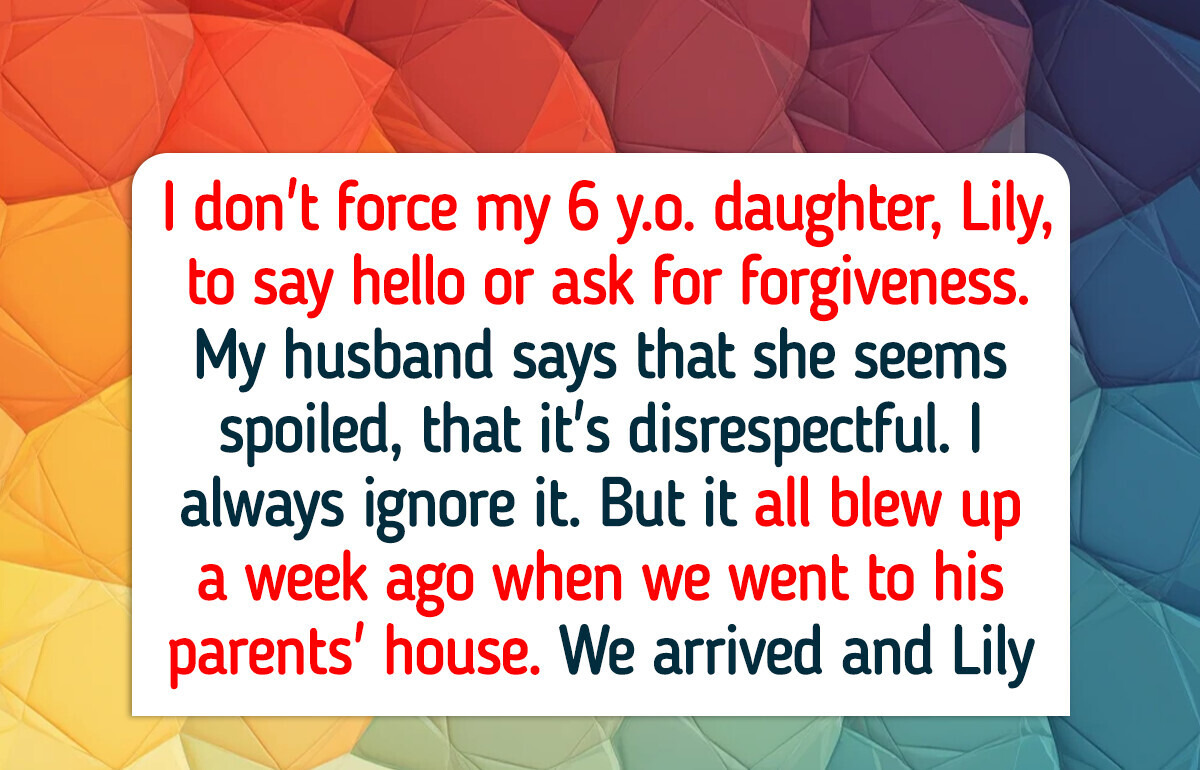
When it comes to parenting, there is no one-size-fits-all approach. Some parents use traditional methods based on obedience and structure, while others choose to prioritize emotional awareness and autonomy. Caroline, a 40-year-old American reader, is in the latter group. She contacted Bright Side to share her parenting philosophy, which some consider controversial, particularly her refusal to let her daughter say hello or ask for permission. But more than sharing her story, Caroline is looking for guidance because her approach has not only created tension in social situations, but has also put her marriage in jeopardy. Here's her story.
A reader in a threatening situation who is simply looking for advice and guidance.
Caroline, an avid follower of the site, decided to contact us via email to share her story with the rest of the readers through the platform and hopefully get some guidance and clarity in one of the darkest moments of her life.
Her message begins, "Hello Bright Side and Bright Side readers. My name is Caroline, I'm 40 years old, and I live in Oregon. I've always enjoyed reading the stories others share in this space and have often left my comments out of empathy. Today, however, I am the one who needs to be heard. I don't know if I'm making a mistake... or if I'm just the only one who sees something others can't."
Caroline always wanted to be a mother, and even before she conceived her daughter, she had made a radical decision.
Caroline’s message continues: “I have always had a maternal instinct, even though I was an only child. Growing up, while other girls dreamed of becoming presidents or astronauts, I wanted one thing more than anything else in the world: to be a mother and raise a family with a bunch of kids. I never really sat down and thought about why I wanted that so much, although now that I think about it, it probably had something to do with my upbringing.
I grew up in a family where there were not too many displays of affection, where education was synonymous with obedience. The rules were clear: ask permission, shake hands, kiss adults even if you didn’t know them, and say hello to everyone even if you didn’t feel like it. I remember the feeling of having to smile through gritted teeth, feeling invaded but forced to be ’polite’. So I promised myself that the day I had a daughter or a son, I wouldn’t do that to her or him. I would strive beyond exhaustion to be the best mother that child could have. I would give it my all and make that my true goal in this life.”
Caroline’s 6-year-old daughter Lily is a child who doesn’t ask for permission to exist.
The message continues, "Lily, my 6-year-old daughter, is my dream come true, the princess of my imagination. Since she came into this world, she has filled every minute of my days with pure happiness and pride. And I have tried to repay everything she gives me in the best way I know how: by being a good mother to her.
Since she started talking, I have tried to give her voice the same value as mine. I don't force my 6y.o. daughter Lily to say hello, or kiss anyone, or ask for forgiveness when she's not sorry. I want her to understand that her body belongs to her. That she can remove herself from an uncomfortable situation without feeling guilty. That being kind doesn't mean sacrificing yourself to please others. I know this sounds strange to many. Sometimes it sounds strange to me. But I still think it's the right thing to do."
But not everyone agrees with this ideology. Not even her husband.
Caroline adds, "It is at this point that I must tell you about my husband, David.
He was brought up with different ideas. To him, civility is the bridge that connects people. And that difference in how we think and what we think is right when it comes to raising our little girl has led to more than one disagreement, each worse than the last. Mostly because his family feels they have the right to criticize my role as a mother, and they've taken it upon themselves to fill David's head with it. My husband says that Lily seems spoiled. That she doesn't know how to apologize, doesn't say thank you, doesn't say hello... and that it's disrespectful. That we isolate her. And lately he says 'we' as if it's ironic, because he's making it more and more clear that he doesn't feel a part of this way of raising her. However, I always decide to just ignore it until it passes and everything goes back to normal.
But it all blew up a week ago when we went to his parents' house. When we arrived and got in, Lily (6) wouldn't say hello, as usual. My MIL tried to hug her, but Lily pulled away violently and screamed, 'Don't touch me!' There was an awkward silence. I remained calm, showing my support for my daughter's attitude of setting boundaries regarding her personal space. But suddenly my husband stood up and, as if he had become a different person, said to her in front of everyone, 'You will not talk to the family like that. Apologize now.' Lily looked at me with big eyes, pulled back behind me and began to sob. She didn't say a word. It was the first time anyone had ever reprimanded her like that, and I must admit, I felt my daughter's pain on my own skin. I had to stop myself from speaking her truths to David's face. Instead, I just ignored everyone all day and focused solely on my little girl. That night we slept in silence, in separate rooms."
The marriage is on the verge of collapse, and Caroline hesitates for the first time.
Caroline says that the next day, her husband confronted her with a harshness she had never seen before:
“He told me he didn’t know if we could raise Lily together anymore. That our daughter had no boundaries. That if we continued, she would be rejected in school, in life, in the world. That he felt more and more like a guest in his own home. He asked me if I wanted a strong daughter or a lonely daughter. And I didn’t know what to tell him.
I don’t want Lily to be a girl who obeys out of fear. I want her to be a woman who doesn’t apologize for existing. But I can’t deny that sometimes I feel lonely, too. That it hurts me to see her left out of groups, singled out as ’weird’ or ’rude.’ That sometimes I want her to fit in, even if it’s at the cost of pretending a little. And it hurts even more to feel that in trying to save her from the world, I might not only lose my life partner, but also fail in my goal, my mission in this life: to be a good mother. And that is something I could never forgive myself for...”
The letter ends with a question that is more of a cry.
“Am I being brave...or just stubborn? Am I raising a free child, or am I leaving alone a child who doesn’t understand why the world demands that she apologize for being who she is? And if being true to my parenting means losing my marriage, am I willing to do that? I’m not looking for approval. I just want to understand if there is another way. If there is a way to parent from freedom...without destroying everything else along the way. Thank you in advance for your advice and recommendations. At this point in my life, even the smallest word of guidance will be received as the greatest blessing.”
Caroline’s story opens a debate that goes beyond the forms of education: How much are we willing to give up for family harmony? And how much is it worth to remain faithful to our own values? Just like our protagonist in today’s story, we want to know your opinion: do you think Caroline is doing the right thing or is she going too far? How would you handle such a situation in your family? And if you enjoyed reading this article, don’t miss this one, in which a confession is made about a family situation that no one wants to face at any time in their lives.
Comments
Lady your kid is a brat because of YOU! You can teach her she has control over her body but RESPECTFULLY!! She is a spoiled brat because you've allowed it!! Your hubby is 100% right! NO1 wants to be around a spoiled child.
Related Reads
We Moved My Son Out of His Room, and Thought He Was Okay—But We Were Wrong
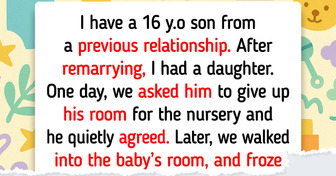
My BF Made My Life Hell After I Publicly Rejected His Proposal — Now It’s Payback Time

I Refused to Abide by My Sister’s Wedding Rule—And She Utterly Destroyed Me
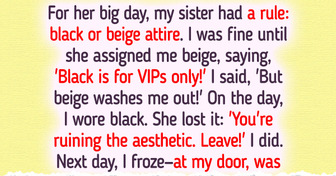
I Refused to Tip $300 After Being Invited to a Dinner
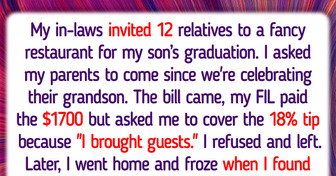
15 People Share Hair-Raising Stories About Their Partners

My In-laws Invited Everyone to a Family Gathering — Except For My Kids
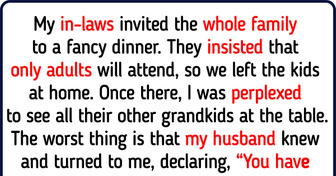
12 Family Drama Stories That Stirred Up a Storm of Emotions
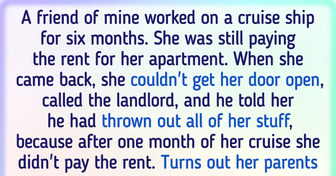
10 People Who Remarried Their Exes Share What Really Happened After
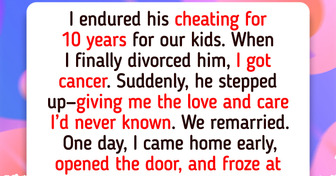
My Husband Disappeared, Leaving Me 8 Months Pregnant With His Baby
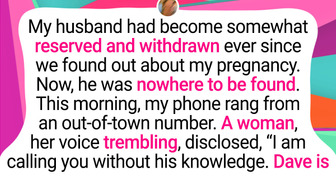
I Refused to Expose My Salary to My Parents, Now My Life Is Falling Apart

I Refused to Let My MIL Own My Family Budget, Now My Marriage Is on Thin Ice

15 Stories That Prove a Good Heart Doesn’t Go Unrewarded
